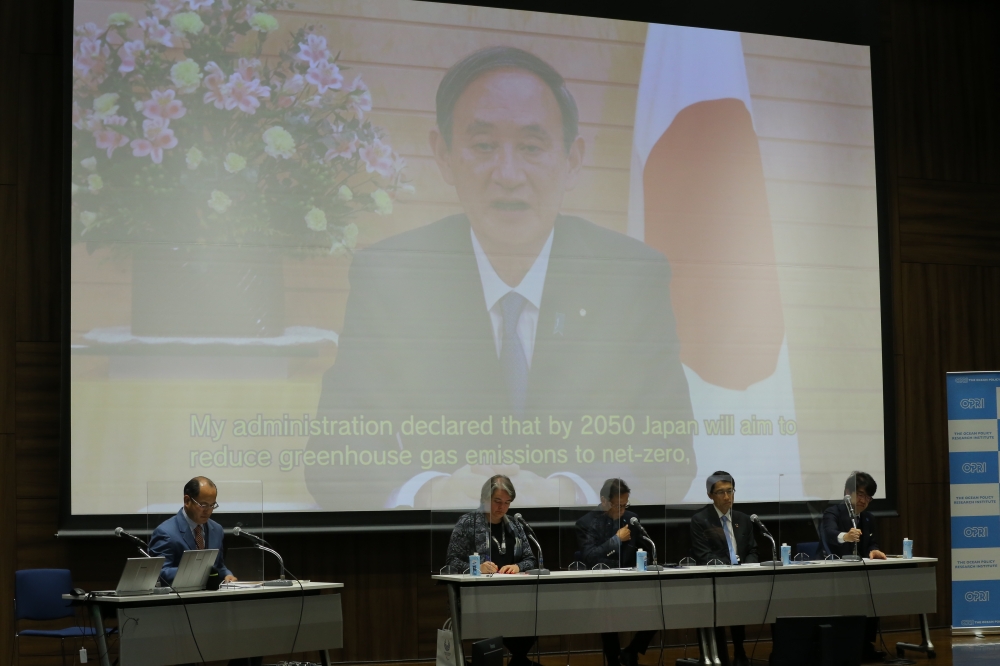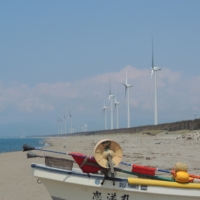Among global environmental issues, the sustainable use of the seas is of paramount importance. About 2.4 billion people, 40 percent of the planet’s population, live within 100 km of the ocean, and it can easily be argued that everyone relies on the ocean in some way, whether for sustenance, shipping or employment.
These observations were further emphasized at an open webinar on Dec. 2 to launch the policy recommendations by the High Level Panel for a Sustainable Ocean Economy, hosted in Tokyo. This 14-country panel of heads of states and governments includes ocean states like Japan and Norway and small island countries like Palau and Fiji.
Small island countries whose economies and ways of life depend almost entirely on the ocean are the most vulnerable to rising ocean temperatures, depletion of fish stocks and continued accumulation of marine plastic. Because the global economy is linked by, for instance, the Pacific Ocean and is promoted through organizations such as APEC, the negative economic and environmental impacts that these countries face will ripple outward, affecting other countries as well.
Problems and solutions
Fish stocks continue to be depleted as the global population rises. On Dec. 4, Japan approved a law that reinforces measures to eliminate fish caught by illegal, unreported and unregulated fishing from its seafood market. As Japan is the world’s second-largest consumer of seafood, individuals, retailers and the government must all be vigilant to ensure their seafood is from sustainable sources.
Furthermore, marine biodiversity is dwindling due to unsustainable ocean use and plastic pollution. To combat this, the panel supported a global target of protecting 30 percent of the ocean by 2030, and Japan is aligned to pursue this goal. Japan strives to promote its Osaka Blue Ocean Vision goal of adding no plastic to the ocean by 2050, unveiled at the Group of 20 summit in 2019. Globally, 7.5 percent of the world’s ocean lay within marine protected areas as of August 2020, according to the United Nations’ Global Biodiversity Outlook report. The marine protected areas under Japan’s jurisdiction was 8.3 percent. With the designation of an additional four seabed areas, such as those around the Ogasawara Islands, as marine protected areas in December last year, Japan’s marine protected areas have now increased to 13.3 percent.
To address ocean sustainability issues, the panel set policy recommendations and targets. Prime Minister Yoshihide Suga underpinned at the webinar Japan’s goal of becoming a carbon-neutral country by 2050 in large part by generating more offshore wind power. Atsushi Sunami, president of the Sasakawa Peace Foundation, sees this as an important policy direction though consensus-building, yet the pursuit of co-benefits with fishermen and local stakeholders remains a challenge to be tackled.
The panel has emphasized that to realize these goals, the responsibility of taking care of the ocean lies upon everyone’s shoulders: Governments can pass laws to protect marine areas, punish illegal fishing and push for green shipping, but consumers and businesses must also act on the issues. In particular, it is vital now for individuals to reconsider consumption of single-use plastics as well as investment patterns and to raise awareness about how everyday choices are connected to sustainable outcomes.
Japan’s potential leading role
According to Masanori Kobayashi, a senior research fellow at the Sasakawa Peace Foundation’s Ocean Policy Institute, Japan is uniquely poised to play a leading role toward ocean sustainability. While all nations’ economies depend more or less on the health of the ocean, not all countries have strong cultural connections to it. The culture of Japanese who live in places dubbed satoumi — coastal areas where humans have lived in harmony with the sea for hundreds of generations — consider the ocean and the people who make their livelihoods from it as non-separable entities. The combination of Japan’s heritage as an island nation and its development of innovative technologies is what places Japan in a perfect position to grasp the importance of ocean sustainability from both economic and cultural perspectives. Given this, Japan is expected to be in the vanguard of the international push toward sustainable ocean use.
In her remarks at the panel’s webinar, Palau’s ambassador to the U.N., Ngedikes Olai Uludong, highlighted the panel’s campaign Give It 100%: “In short, we need to give the ocean 100 percent care because 100 percent of us depend on the ocean.”




















With your current subscription plan you can comment on stories. However, before writing your first comment, please create a display name in the Profile section of your subscriber account page.